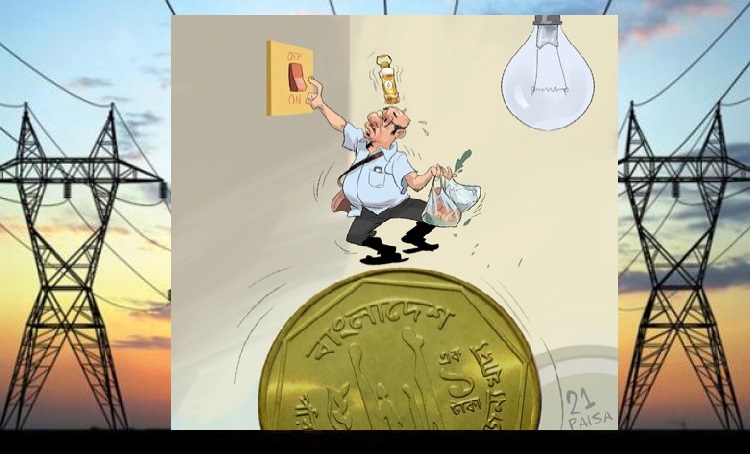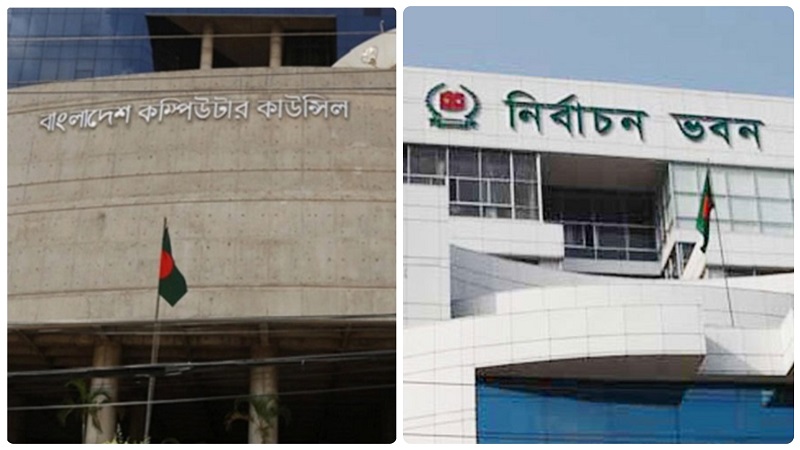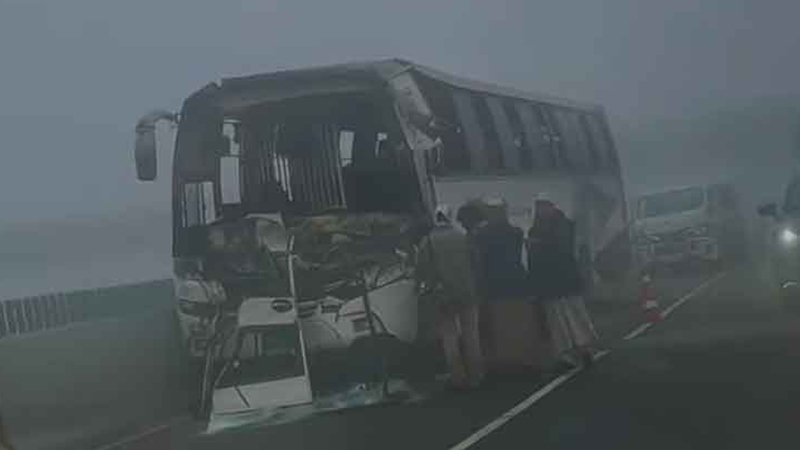The Technical Evaluation Committee of the Bangladesh Energy Regulatory Commission on Sunday recommended an average hike of over 15 per cent in the retail power tariff in a rather hurried move seen as a sign of its immediate implementation.
The recommendation came in less than two months after a 20 per cent hike in the bulk power tariff was decided after only a day of public hearing which previously extended over days.
The TEC also recommended raising the wheeling charge of the Power Grid Company of Bangladesh by more than 13 per cent, which was included in the recommended average retail tariff.
The recommendation came at a public hearing as fuel shortage keeps operations at scores of power plants grounded for months, now amid a dollar crisis severely limiting Bangladesh’s fuel import capacity.
The proposed retail price hike would generate an additional income of roughly Tk 8,000 crore for power distributors, the BERC heard at the public hearing, though there was no guarantee of it ending the country’s current power crisis.
The law requires a decision on a tariff hike recommended by the BERC Technical Evaluation Committee within a maximum of three months after the recommendation is made.
Energy experts and consumer rights activists warned that the worst of the crisis was yet to come — a claim not disputed by power distributors — and that the price hike would further hurt people wrestling with inflation.
‘The price hike will not help Bangladesh in any way. It will not increase dollar supply,’ said Consumers Association of Bangladesh energy adviser M Shamsul Alam at the public hearing.
‘The price hike would rather antagonise people who are fighting with soaring living cost following the pandemic and amid a global energy crisis,’ he said.
The proposal for power price hike, interpreted by energy and consumer rights experts as an ominous sign of a terrible year lying ahead, has shocked the people already hard-pressed in coping with gas, medicine and petroleum price hikes that came last year.
The crippling power outages, which severely affected life and businesses alike at the height of the past summer, is also likely to reappear this summer.
‘We have a very uncertain year ahead,’ BERC chairman Abdul Jalil told the hearing, adding, ‘2023 will present bigger challenges. Uncertainty looms over remittance inflow and revenue generation.’
The government has been in the process of getting the law reformed to avoid public hearing in future so that it could increase power prices by executive order.
The public hearing began, with six power distributors and the PGCB justifying between 16 per cent and 27 per cent increase in tariff and wheeling charge.
The bulk power tariff increase, which came on November 21, 2022, raised the revenue needs of the state-owned companies, they said.
The increase in the dollar exchange rate and in interest on foreign debt received for carrying out development projects also raised the demand for revenue, they companies said in their presentations.
After evaluating the companies’ proposals, which were submitted to the BERC in November, the TEC recommended the price hike.
Company-wise, a 15.61 per cent hike in retail power tariff was recommended for the Power Development Board, followed by a 14.74 per cent price hike for the Rural Electrification Board, a 16.71 per cent hike for the Dhaka Power Distribution Company Limited, a 16.17 per cent hike for the Dhaka Electricity Supply Company Limited, a 16.19 per cent hike for the West Zone Power Distribution Company Limited and a 15.58 per cent hike for the Northern Electricity Supply Company Limited.
The TEC calculated the newly recommended tariff based on more than 6 per cent growth in power distribution in coming days, which energy experts highly doubted under the current circumstances.
CAB’s Shamsul Alam reminded the BERC that the gas price was earlier increased promising 1,000mmcfd of LNG supply to the national grid, a promise which was rarely implemented, with the supply often dropping to 350mmcfd.
Abdul Jalil asked the Power Development Board, the sole buyer of electricity, to disclose in three to four days if the government planned to continue extending subsidy support in the power sector, indicating the possibility of the retail power tariff going up even more in the event of the government deciding against it.
The prime minister and the power state minister already hinted at withdrawing power subsidy which was viewed as a significant obstacle to Bangladesh accessing the agreed IMF loan of $4.5 billion.
In 2021–22, the power sector deficit stood at about Tk 30,000 crore. In the financial year, the government paid Tk 12,700 crore in subsidy. The deficit is estimated to hit Tk 44,000 crore in 2022-23, largely because of the high capacity charge and the volatile energy market.
Shamsul Alam said that the fresh power price hike could have been avoided by reducing predatory expenses, which are often illegal and unjustified.
For instance, he said, board members of power distribution companies charge Tk 12,000 in fee to attend a meeting while power sector officers receive 400 units of electricity for free every month and its employees 200 units.
In 2019, the CAB estimated that checking inefficiencies and corruption could save Tk 10,549 crore in the power sector, eliminating the need for government subsidy.
The dollar crisis got so severe that the PDB last paid power bills, which need to be paid in dollars, seven months ago.
Besides, the power sector megaprojects generate $2 billion worth of debt repayment obligation every year.
Bangladesh Shadharon Nagorik Samaj president Mohiuddin Ahmed said that people were paying for a flawed power and energy policy.
‘This is injustice,’ he said.
Before the bulk price increase in November 2022, the BERC increased the bulk and retail prices in February 2020 — by 8.39 per cent and 5.3 per cent respectively.
This is the 11th time since the incumbent government assumed power in 2009 that electricity prices have been increased at either bulk or retail level or at both levels.
A fresh hike of retail power price became obvious with the TEC placing its recommendation at the public hearing.
In the past 10 years since 2013, there was no example of a TEC recommendation getting cancelled.
Bangladesh has an installed power capacity of 25,730MW but is currently struggling to regularly generate even 11,000MW.













